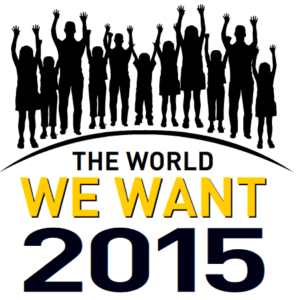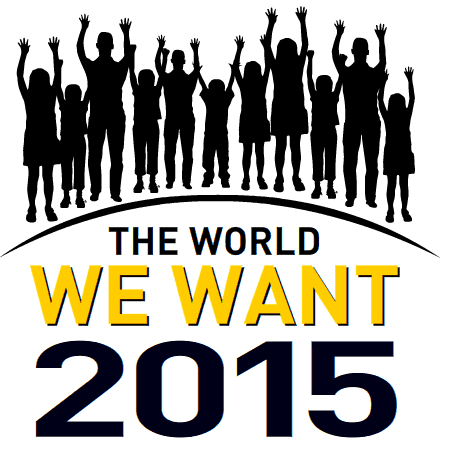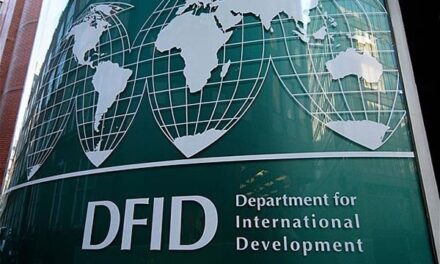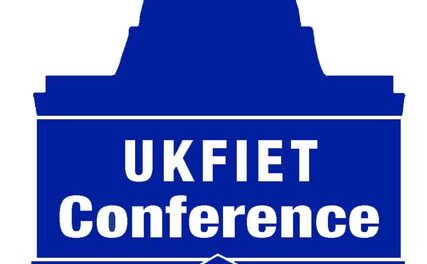 The Post 2015 Global Thematic Consultation on Education continues with a third topic, Global Citizenship, Skills and Jobs, running until 6 February, 2013. This process opened on 10 December 2012 with an E-discussion on Equitable Access to Education and moved on to the topic of the Quality of Learning. These two discussions are now closed, and the report for the first consultation will be available shortly. Keep an eye on my original post for information on how to access the report.
The Post 2015 Global Thematic Consultation on Education continues with a third topic, Global Citizenship, Skills and Jobs, running until 6 February, 2013. This process opened on 10 December 2012 with an E-discussion on Equitable Access to Education and moved on to the topic of the Quality of Learning. These two discussions are now closed, and the report for the first consultation will be available shortly. Keep an eye on my original post for information on how to access the report.
These open online consultations are part of a series of four thematic e-discussions of the Education Global Thematic Consultation on the World We Want platform. The UN jointly with civil society is gathering views from people around the world and building a collective vision on priorities for a Post-2015 framework. Opinions gathered will inform the UN and world leaders to plan a new development agenda. Each of the education e-discussions will run for 2 weeks and we want to ensure as broad and diverse consultation as possible.
As a co-moderator of the Equitable Access discussion, I continue to urge the UKFIET Constituency to make their voices heard on these important issues.
Consultation Three
E-Discussion Three on the topic of Global Citizenship, Skills and Jobs is already a topic of UKFIET debate, and one in which we should be able to make our voices heard. Here on the CoP, we have already had some discussion about skills and jobs by way of contributions from Hugh Lauder and Simon McGrath. Keep those conversations and debates going by visiting their posts and adding your own comments.
This third E-Discussion is moderated by Dr. Jean D’Cunha, UN Women; Lily Talapessy, UNFPA; Steve Vosloo and Katerina Ananiadou, UNESCO; Kjersti Mowe, Global Campaign for Education; and Will Paxton from Save the Children, who has recently contributed to the CoP.
This Discussion will run until 6 February, 2013. Please click here to go directly to the discussion page and participate. If you have not registered yet, please go to the Education Global Consultation web page.
To kick off this third E-Discussion, the Moderators invite you to reflect on the following:
Education for Jobs and Skills
At the most basic level, education is an important requirement to enter the job market. Over the last ten years, the number of 15- to 24-year-olds in the Arab States, South and West Asia, and sub-Saharan Africa has increased from 474 million to 566 million. By 2020, it will reach 623 million. An additional 57 million jobs will need to be created for new entrants to the labor market to prevent unemployment rates from rising above current levels. Young women are equally if not more adversely impacted. Girls of lower secondary school age are more likely to be out of school than boys, regardless of factors such as wealth and household location[i].
Provision of basic literacy and numeracy skills, which are essential to learning further skills for work, equal access to quality primary and secondary education and vocational and skills training that match job market opportunities are critical for young people in urban and rural areas especially in low income countries. These trigger getting out of poverty, coping with climate change, food insecurity, migration and other issues. It helps young people to find new ways in which to respond to the impacts of the different types of crises and prevent new ones from occurring. It makes their entry to the labor market easier for better job opportunities.
Global Citizenship and Education
The world faces global challenges, which require global solutions. Globalization has increased the interdependence, connectivity, and integration on a global level, with respect to the social, cultural, political, technological, economic, and environmental areas. Global citizenship is an umbrella term for the social, political, environmental, or economic actions of globally-minded individuals and communities on a worldwide scale that shape the future of the planet.
It is not enough for education to produce individuals who can read, write and count. Education for global citizenship empowers people and especially youth around the world by providing them with the necessary knowledge and skills and by raising their awareness, thus equipping them with the tools needed to become responsible global citizens who can take joint actions. Education must be transformative and bring shared values to life. Technological solutions, political regulation or financial instruments alone cannot achieve sustainable development. It requires transforming the way people think and act. Education must fully assume its central role in helping people to forge more just, peaceful, tolerant and inclusive societies. In practice, education for global citizenship is quality and relevant education through a holistic approach, involving every stakeholder. Equipping young people with knowledge and skills to navigate the fundamental transition from childhood to adolescence, be it through information on healthy life-styles, through comprehensive sexuality education or by fostering positive gender norms, values and behaviors, fits into this vision.





